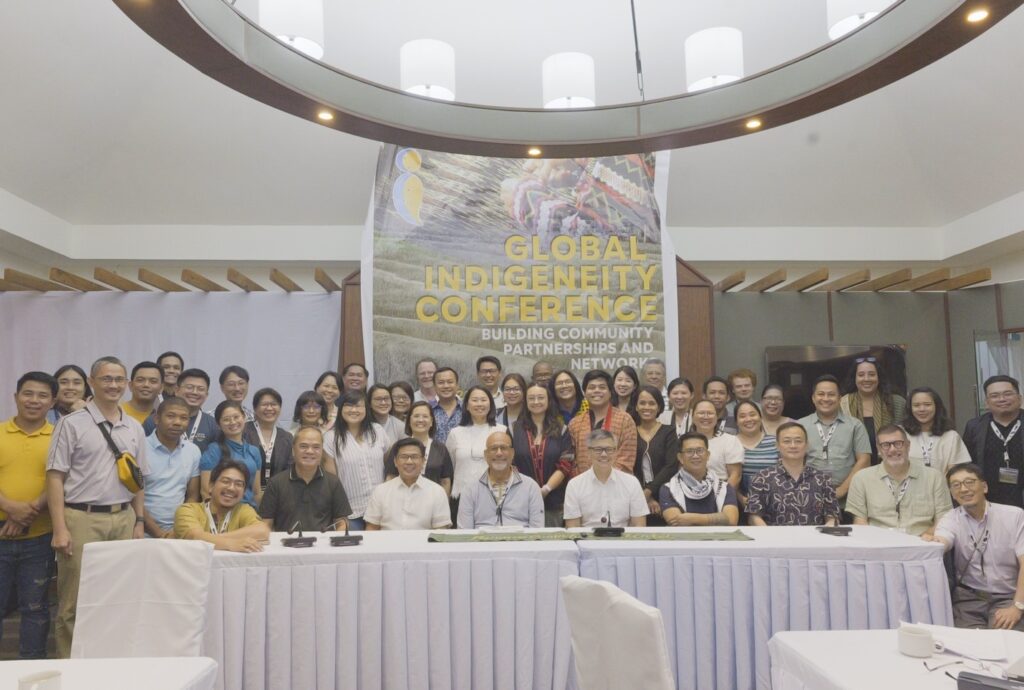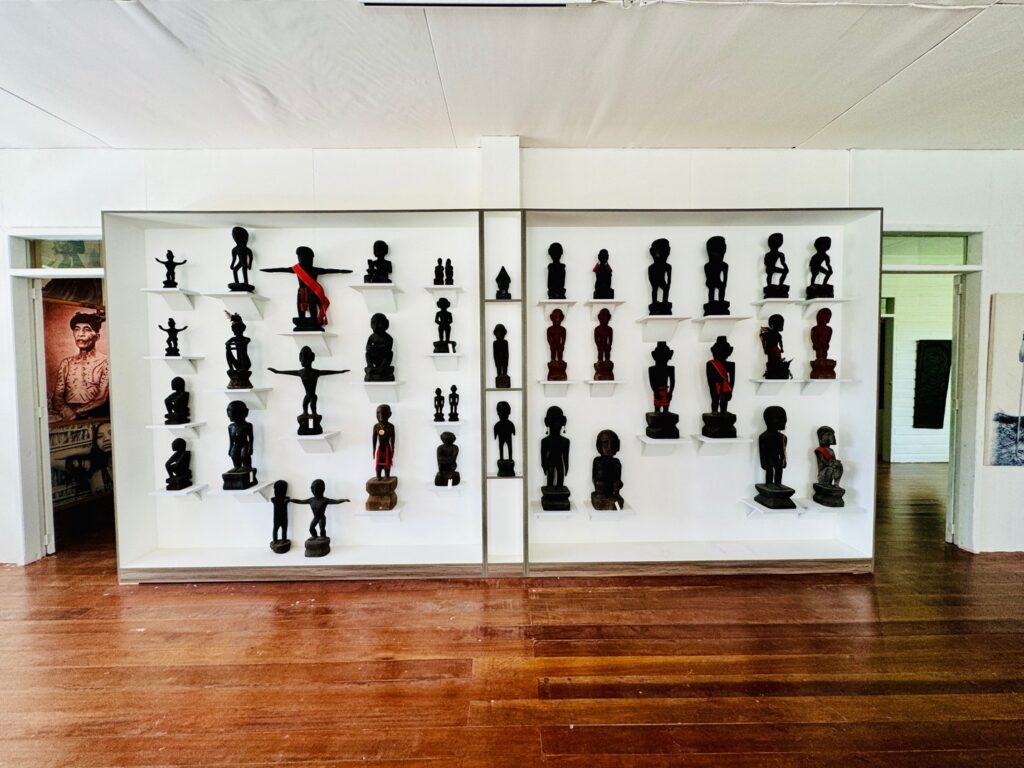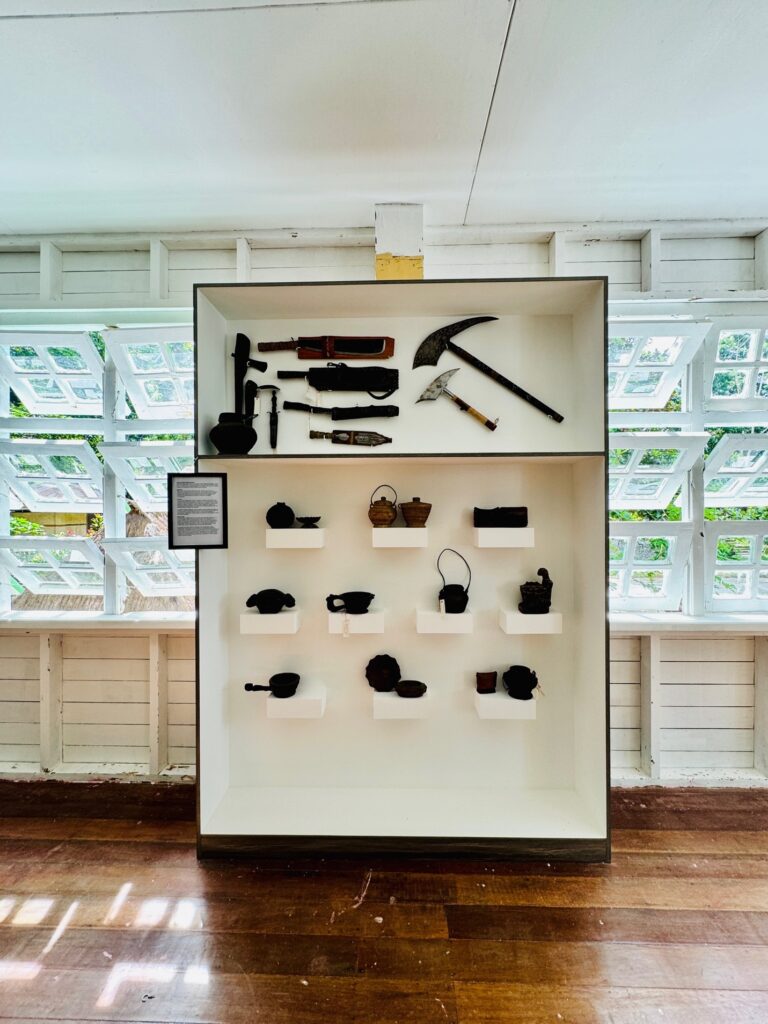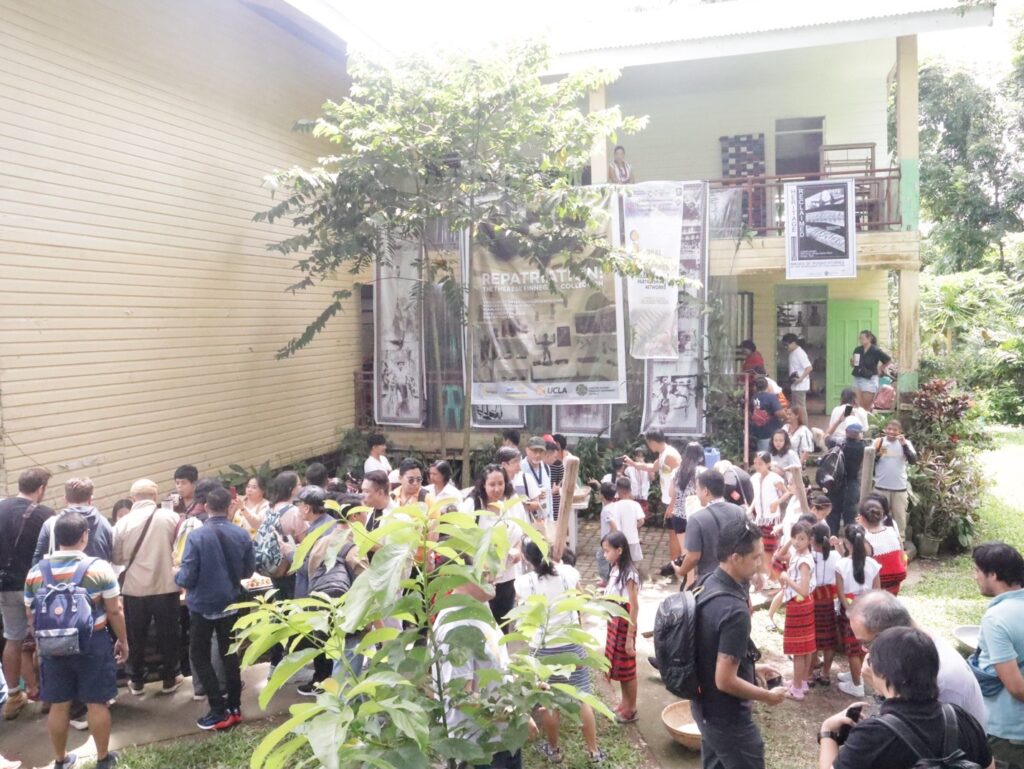The Global Indigeneity Conference: Building Community Partnerships and Networks
Stephen Acabado, Marlon Martin, and Raymundo Rovillos
The Global Indigeneity Conference, held from August 22-25, 2024, in Banaue, Ifugao, brought together over 90 participants from across the globe, including representatives from the Philippines, Australia, Japan, Malaysia, Vietnam, Taiwan, and the USA. This unique gathering of scholars, Indigenous leaders, and advocates provided a critical platform to address the urgent challenges facing Indigenous communities worldwide. Co-sponsored by several Philippine state universities and colleges such as Partido State University, Agusan del Sur State College of Agriculture and Technology, Sorsogon State University, Pangasinan Polytechnic College, Mindanao State University-General Santos, and Ifugao State University, with international support from the UCLA Center for Southeast Asian Studies, the event was made possible by generous funding from the Henry Luce Foundation and the Wenner-Gren Foundation for Anthropological Research.
The Save the Ifugao Terraces Movement (SITMO) played a central role as the main community partner, driving the conference’s mission forward. With SITMO’s established work on Ifugao heritage conservation and community engagement, the conference reflected their long-standing commitment to promoting collaboration between Indigenous communities and scholars. SITMO’s efforts underscore their critical role as a driver of change and sustainability in Indigenous issues, making this event not only a forum for dialogue but a step forward in strengthening global Indigenous networks.
The conference opened with an energetic atmosphere, as participants engaged in insightful discussions on a range of topics, including identity, land rights, climate science, health, and education. At the heart of these discussions was the drafting of the Banaue Declaration, a document urging researchers to adopt ethical practices that elevate Indigenous voices. The Declaration challenges the status quo of extractive research models, pushing instead for Indigenous peoples to take active roles in shaping the very research that impacts their lives. This is not just a call to collaborate—it is a demand for equity and justice, marking a significant step toward decolonizing the research space.

Throughout the four days, conference panels tackled a range of pressing topics, beginning with Defining Indigeneity. This session set the tone, exploring the fluid and evolving nature of Indigenous identity in the face of colonial legacies and modern global pressures. As panelists noted, Indigeneity is far from a static label; it is a living, breathing concept that shifts as communities continue to resist, adapt, and thrive. These conversations echoed across other panels, particularly those focused on land issues and management.
Land rights remain one of the most enduring struggles for Indigenous peoples, and the conference provided space to unpack these conflicts. Attorney Evelyn Dunuan’s keynote speech offered a historical perspective on current legal frameworks, detailing the struggles to pass the Indigenous Peoples’ Rights Act through the Philippine legislature. She also urged stronger protections for ancestral lands. But the conversation didn’t stop there—panelists shared diverse perspectives on traditional land-use practices, their intersections with environmental policies, and the need for legal reforms that genuinely respect Indigenous sovereignty. The enduring spiritual and cultural ties that Indigenous peoples have with their lands were a constant thread, reminding participants of the deep-rooted relationships that transcend mere property rights.
Perhaps one of the most critical panels was Indigenous Knowledges and Climate Science. Indigenous knowledge systems, developed over millennia, have long provided sustainable solutions to environmental challenges. Yet, these systems are often sidelined in global climate discourses. Dr. Da-wei Kuan’s keynote called for the integration of Indigenous wisdom into mainstream climate science. He underscored the urgency of recognizing Indigenous knowledge not as an afterthought, but as a key component of any meaningful climate adaptation and mitigation strategy. From agricultural practices to water management, Indigenous communities have long been at the forefront of environmental stewardship, offering models of resilience that the world desperately needs in the face of a climate crisis.
Health, another crucial area of discussion, took center stage. Indigenous health is often understood in holistic terms, combining physical, emotional, spiritual, and mental well-being. Panelists highlighted the need for healthcare models that integrate traditional healing practices with modern medical systems. Such approaches, they argued, would ensure better health outcomes for Indigenous populations. This is not just about providing care—it’s about recognizing the value of Indigenous knowledge in promoting wellness and offering culturally sensitive healthcare solutions.
Education, too, was a key focus of the conference, offering insights into how formal education systems can better serve Indigenous communities. Participants emphasized the importance of integrating Indigenous knowledge, languages, and perspectives into education programs, both to foster pride among Indigenous youth and to preserve cultural heritage. It was clear from the discussions that education is not just a tool for economic advancement, but a critical site of cultural survival.
The conference also celebrated the power of storytelling and media with the launch of two film projects funded by the Luce Foundation. Sayun Simung’s Back to Our Land, which chronicles the Tayal community’s search for their ancestral village in Taiwan, and Kristian Cordero’s Mga Nakabuhing Agi-Agi (Found Objects, Freed Stories), which tells the story of the Agta Buhi community in Camarines Sur, demonstrate the importance of visual media in documenting Indigenous histories and struggles. Both films reminded the audience that reclaiming heritage is not only about the past—it’s about securing a future where Indigenous stories are told by Indigenous voices.
One of the most significant moments of the conference came with the repatriation of the Therese Finnegan Collection. This collection, now returned to the Ifugao, is more than just a set of artifacts—it is a symbol of resilience and reclamation. Held at the Indigenous Peoples Education Center in Kiangan, the repatriation ceremony highlighted the importance of cultural conservation and the role of material heritage in strengthening community identity. As younger generations reconnect with their ancestral traditions through these repatriated items, they are not just inheriting objects—they are inheriting a legacy of resistance and survival.



Another key highlight was the signing of a Memorandum of Understanding (MOU) between UCLA and several Philippine State Universities and Colleges (SUCs), including Partido State University, Agusan del Sur State College of Agriculture and Technology, Pangasinan Polytechnic College, Sorsogon State University, Mindanao State University-General Santos, and Western Mindanao State University. This partnership solidifies a commitment to collaborative research, capacity building, and shared initiatives in climate science, cultural heritage, and education. By fostering deeper ties between these institutions, the MOU sets the stage for innovative programs that integrate Indigenous knowledge systems with academic research.
The outcomes of the Global Indigeneity Conference offer a hopeful vision for the future. The Banaue Declaration, emerging from days of intense dialogue, provides a framework for ethical research that prioritizes Indigenous self-determination. It calls on scholars and policymakers to adopt methods that do not merely include Indigenous voices but position them as co-authors and decision-makers. Through community-centered research, meaningful partnerships, and a commitment to justice, the Declaration envisions a world where Indigenous knowledge is valued as essential to solving global problems.
It is now October 2024, and as we celebrate Indigenous Peoples Month in the Philippines and Indigenous People’s Day in the United States, the lessons of the Global Indigeneity Conference remind us that true progress is only possible through collaboration that respects the autonomy and wisdom of Indigenous communities. The challenges are immense, but with ethical research, respect for Indigenous knowledge, and genuine partnership, we can work toward a future where these communities are empowered to lead the way in shaping solutions that benefit all of humanity.
Stephen Acabado is Professor of Anthropology at the University of California, Los Angeles (UCLA).
Marlon Martin is the Chief Operating Officer of the Save the Ifugao Terraces Movement (SITMO).
Raymundo Rovillos is President of the Pangasinan Polytechnic College.